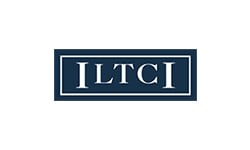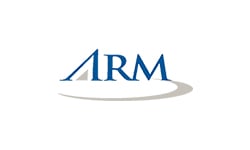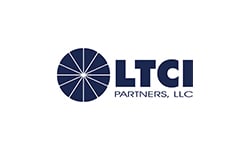Caring for a parent can take a big toll on your finances. Nearly eight in 10 caregivers report having to cover expenses related to caregiving out of their own pockets and spend an average of $7,242 a year on those expenses, according to a study by AARP.
Fortunately, there are tax breaks that might help offset the cost of elder care. Find out if you are eligible for any of these federal tax credits or deductions for taking care of elderly parents.
Can You Claim Your Parent as a Dependent?
Whether you can claim certain credits and deductions for costs related to caregiving depends on whether you can claim your parent as a dependent. Your parent must meet these IRS requirements to qualify as your dependent.
-
Your parent must be a U.S. citizen, resident alien, or resident of Canada or Mexico.
-
Your parent must be single (you can’t claim a married person filing a joint return).
-
Your parent doesn’t have to live with you all year as long as that parent is a qualifying relative—a relative by blood, a stepparent, or father- or mother-in-law.
-
Your parent’s gross income is less than $4,400 (a portion of Social Security benefits might be included as gross income).
-
You provide more than half of your parent’s support for the year. Support includes the amount spent on food, lodging, clothing, medical care, and other necessities.
IRS Publication 501, Dependents, Standard Deduction and Filing Information, has more details about claiming dependents. The IRS also has a Whom May I Claim as a Dependent? tool you can use to help determine whether you can claim your parent.
[ Read: What You Need to Know About Being a Financial Caregiver ]
Tax Credit for Other Dependents
If your parent meets the requirements to qualify as your dependent, you likely can claim the tax credit for other dependents. The maximum amount of this credit on 2022 federal tax returns is $500.
Tax credits reduce taxes owed dollar for dollar. So the $500 credit for other dependents would reduce your tax bill by $500. To qualify for the full amount, your income must be less than $200,000 if you file an individual tax return and less than $400,000 if you’re married and filing jointly. The amount of the credit phases out above those limits.
Dependent Care Credit
If you paid a care provider to care for your parent while you worked or looked for work, you might qualify to claim the child and dependent care credit. You can claim this credit if your parent was physically or mentally incapable of self-care, lived with you for more than half of the year, and was your dependent. However, you also might be able to claim the credit if your parent could have qualified as your dependent except he or she received gross income of more than $4,400, filed a joint tax return, or could have been claimed as a dependent on another taxpayer’s 2022 return.
The amount of the credit depends on your adjusted gross income but can be worth up to $3,000 for 2022 if you paid for the care of one parent or up to $6,000 if you paid for the care of two parents.
Be aware that you’ll need to report the name, address, and Social Security number or employer identification number of the care provider you hired on your tax return. If you paid the person to care for your parent in your home, that person may be considered a household employee, which would require you to withhold certain taxes from that person’s wages and file additional tax forms. See Publication 926, Household Employer’s Tax Guide.
[ Find Out: How to Pay for Long-Term Care ]
Medical Expenses Deduction
If you helped pay for your parent’s medical expenses, you might be able to deduct a portion of those expenses that weren’t reimbursed by insurance. The deduction is limited to the amount of medical expenses that exceed 7.5% of your adjusted gross income.
To claim the deduction, you must itemize it on your tax return. Plus, your parent must qualify as your dependent or would have otherwise qualified as your dependent except for having income over $4,400 or being married and filing a joint return.
Head of Household Status
You might be able to claim head of household status when filing your tax return if you are unmarried and can claim your parent as a dependent. You also must have paid more than half of the cost of maintaining the home where you and your parent live or half the cost of maintaining your parent’s home if your parent didn’t live with you.
Filing as head of household will allow you to claim a standard deduction of $18,800 for 2021 versus the $12,550 standard deduction for single filers.
Dependent Care Flexible Spending Accounts
You might be able to reap tax benefits throughout the year if you have an employer who offers a dependent care flexible spending account as a workplace benefit. Typically, these tax-advantaged accounts are used by parents to help pay for childcare costs. But they also can be used to set aside pre-tax dollars to cover eldercare costs while you work.
To take advantage of a dependent care FSA, you must be able to claim your parent as your dependent for tax purposes, and your parent must be physically or mentally incapable of caring for himself or herself. You can contribute up to $5,000 to a dependent care FSA in 2023. Contributions come out of wages before taxes, so your taxable income is lowered. And money can be withdrawn from the account tax-free for eligible eldercare costs, including the cost of adult daycare or an in-home care provider.
If you plan to claim any of the above credits or deductions for the first time, consider working with an accountant or enrolled agent to ensure that you qualify for the write-offs. Check with your state CPA society to find a certified public accountant near you. You can find an enrolled agent through the National Association of Enrolled Agents.
[ Keep Reading: How to File a Tax Return for a Parent ]
This content comes from Cameron Huddleston of NAIFA partner, Carefull. You can read the original article on their website. Members can learn about how Carefull can help them in the Education Partners area of the member portal.















-CMYK.png?width=250&name=LifeSecureLogo(F)-CMYK.png)






